41 - Hong Kong for a bit
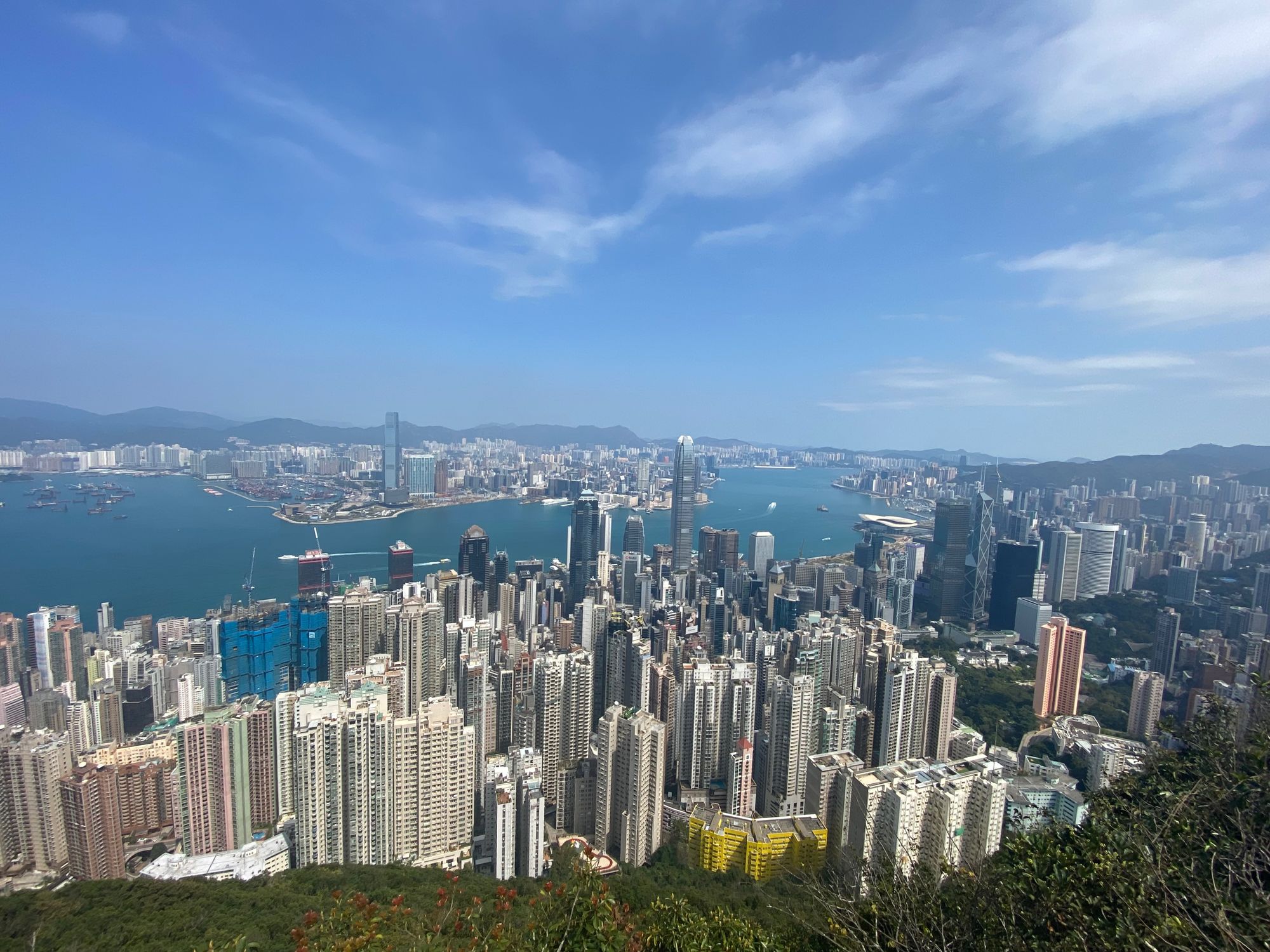
🇭🇰 Yes - we are back in Hong Kong - after just over 9 months on the road. You will recall that we left in late February because we could see that HK was about to get the full "pandemic" experience in 6-9 months with unreasonable restrictions and pressures to get vaccinated and other nonsense - this was apparent from the events of January and February. You will recall that nothing at all had happened in HK for the preceding two years apart from the magical elimination of the flu however the same number of people as would normally die of flu instead "died of/with Covid" - this was about 2,000 - mostly in their 70s and 80s or older from the entire HK population of 7.5million.
Unfortunately things did play out pretty much as we feared and currently it still seems anything but "back to normal" around here. Does anyone know what happened to those 500,000 plane tickets that the government was going to give away to encourage visitors? All the other places we have visited where all restrictions have been dropped seemed to have done well without need to give free tickets - even if they are now considering "Tourist Taxes" - you want to let that one sink in and consider the implications (hint here if you need it).
We are here for a bit and we will be comparing Hong Kong to the other places we have visited this year including: Madeira, Mallorca and Malta, Bangkok, Phuket, Chiangmai, Hua Hin as well as Kuala Lumpur. How do you think that comparison will work out? Our thoughts on arriving in HK are here - comparing the experience with all the other eight countries. Do comment below - did we miss any superb spots that we ought to be considering? While we are here I hope to meet up with as many of my HK friends as possible and am already planning a few hikes and island visits. Do reach out if you want to meet up!
We had a good time in KL and it was pretty much as I remember it. KL is not really a walkable city and things are very spread out. Traffic is pretty awful but Grab cars can get you around fairly cheaply and the public transport is good where it exists. The trains on the Monorail seem to have been refreshed - they did previously seem to be on their last legs(!) but now look modern and fresh. The MRT and LRT seem to have combined forces and the network is like any well-functioning public transit system. Also they have just had an election and it seems the result was contentious...where did I hear that before?
I did also get reunited with my suitcase. Nothing life-changing was found in it but it was like opening a pre-"pandemic" time capsule that we had sealed when we were last here in Feb 2020 - nearly 3 years ago. Did not find any bitcoin (then $8,000) hidden away but we have plenty of shoes and winter clothes that we had packed for our abandoned trip to visit family in Europe as well as travel guides for places that we did not get to visit in the last three years, despite our plans.
It was really good to meet up with friends and former colleagues here in KL - it has been too long. It is so good to meet up in person, enjoy good food together and discuss ideas and share experiences and insights. Among other things I was super happy to get to visit SS2 Durian Man and experience Malaysian durian at their best! I do recommend getting out and meeting with people and discussing face to face - even if you do not have durian available and even if you do not agree on everything - that is healthy!

A few more photos from around KL below: first couple are from KLCC and Petronas Towers, then Bukit Bintang the main shopping area downtown and the art streets of Jalan Alor.
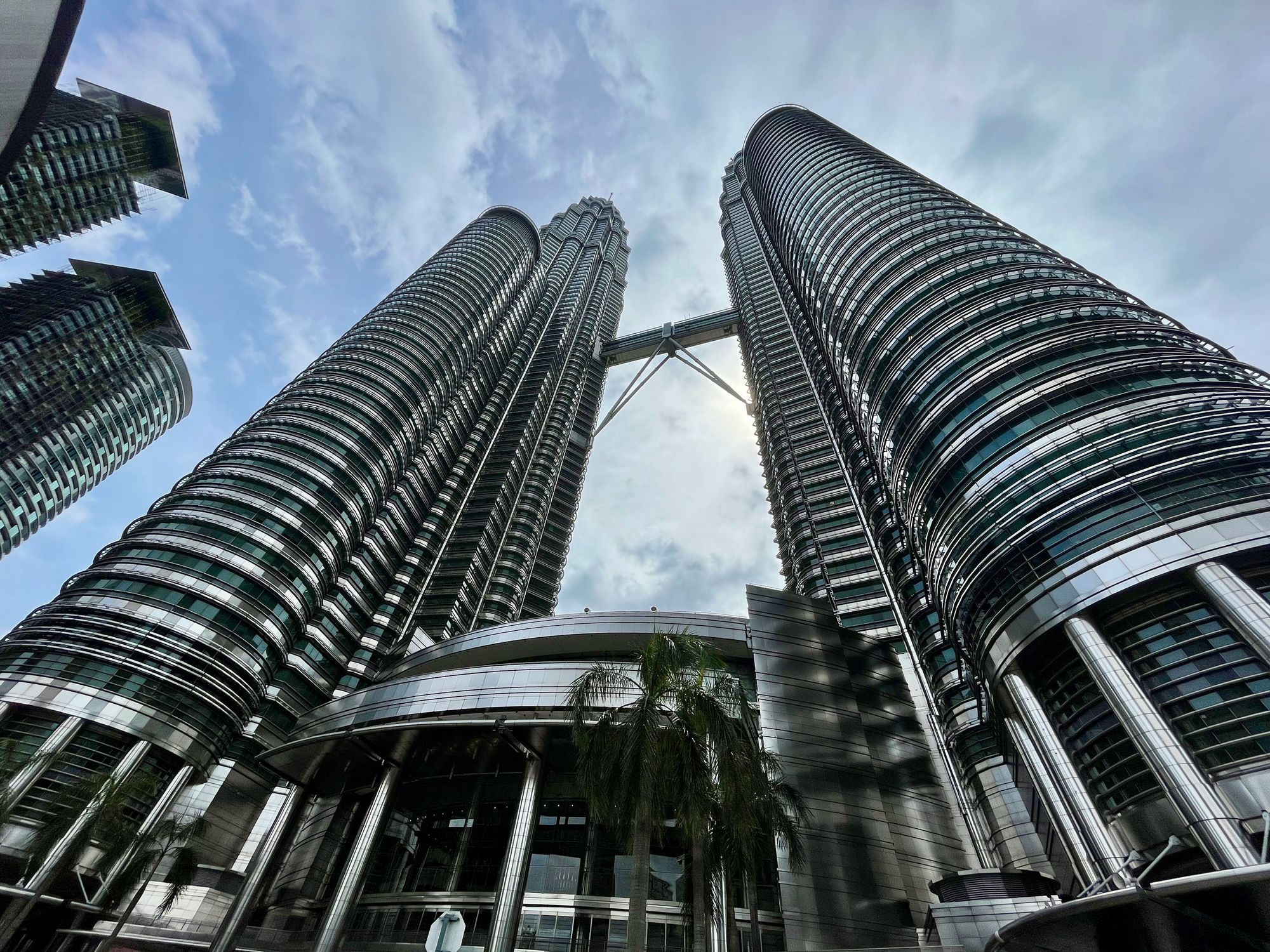


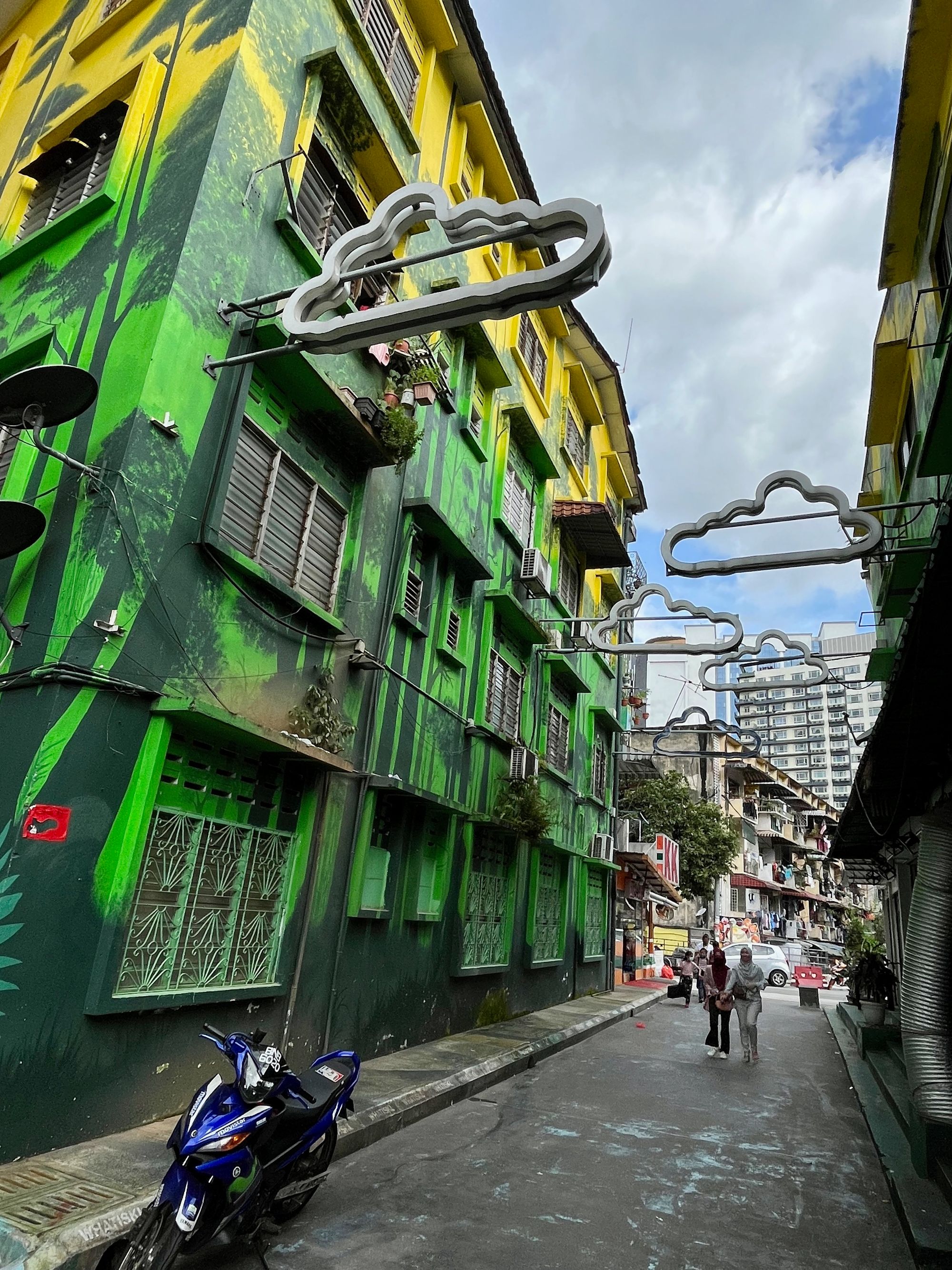



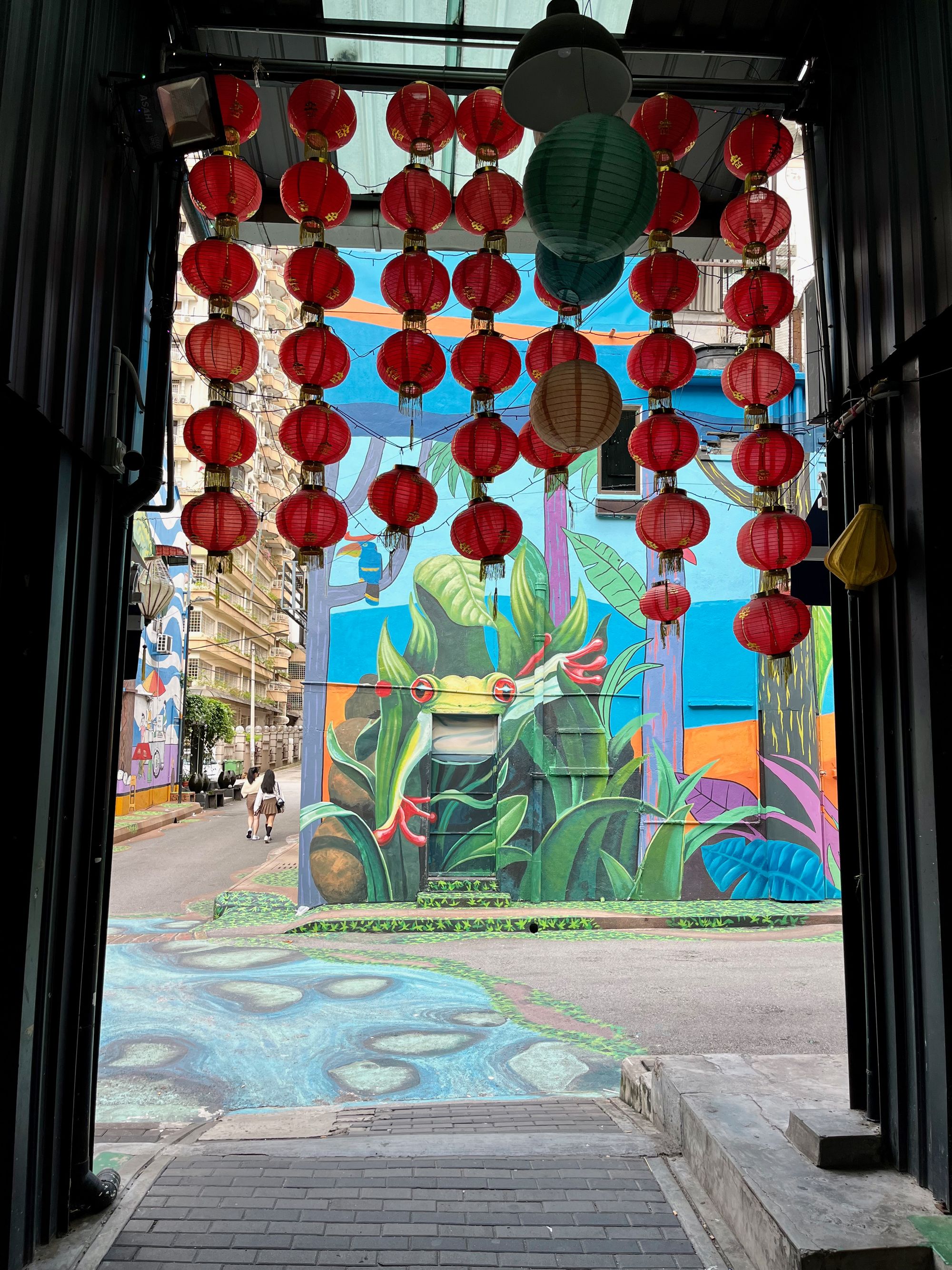
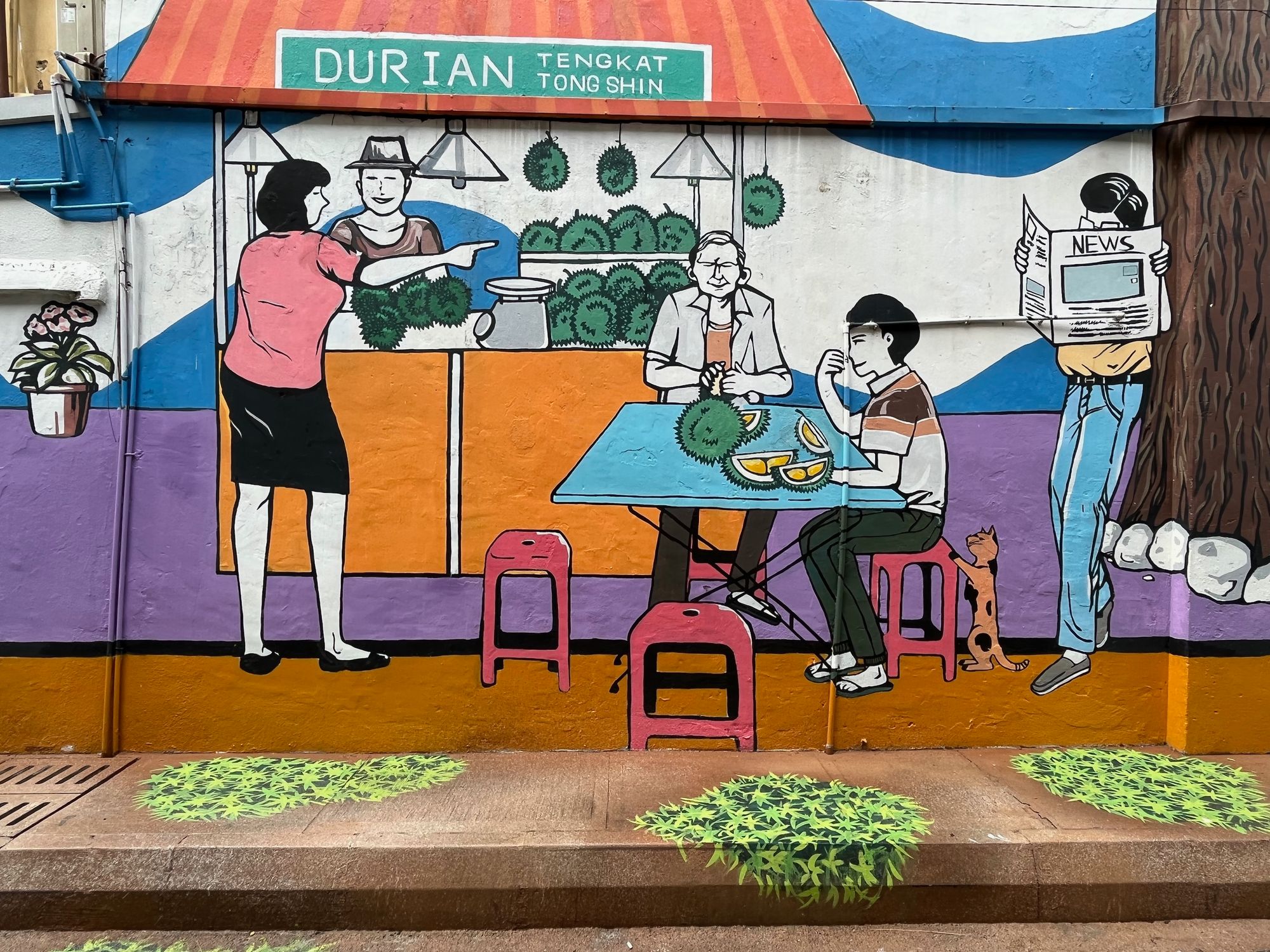
And a few more, including the refreshed Monorail...

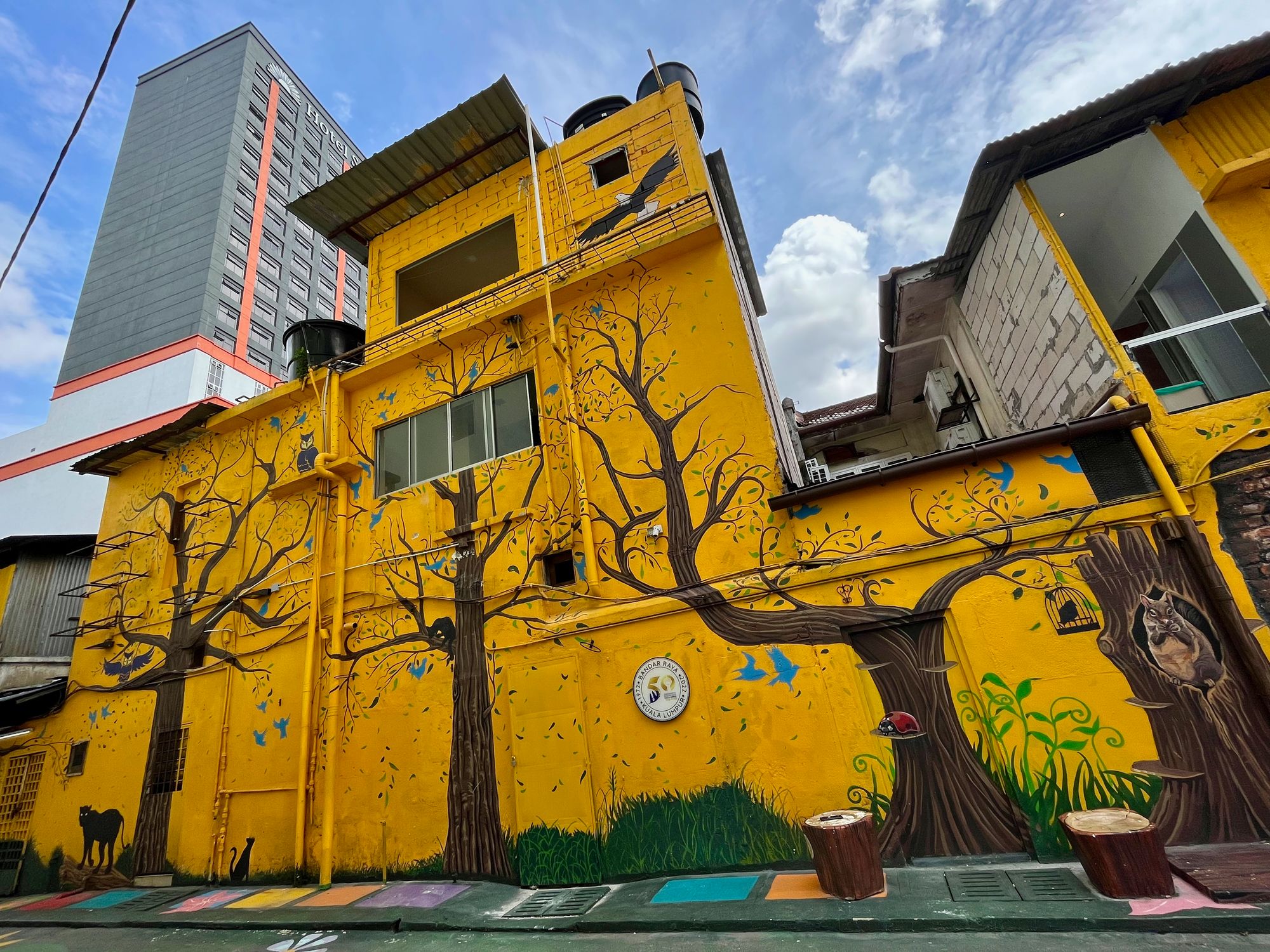


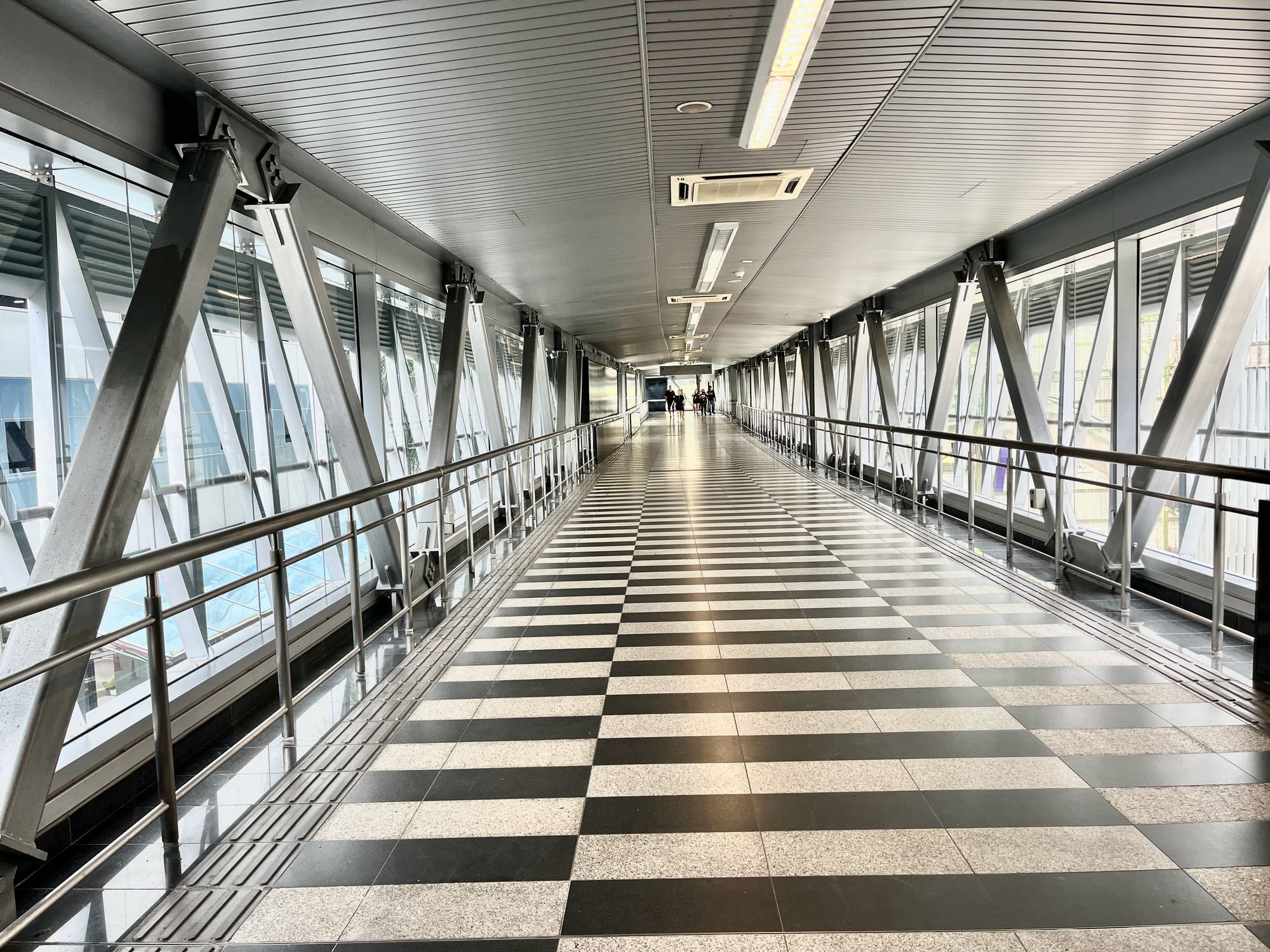
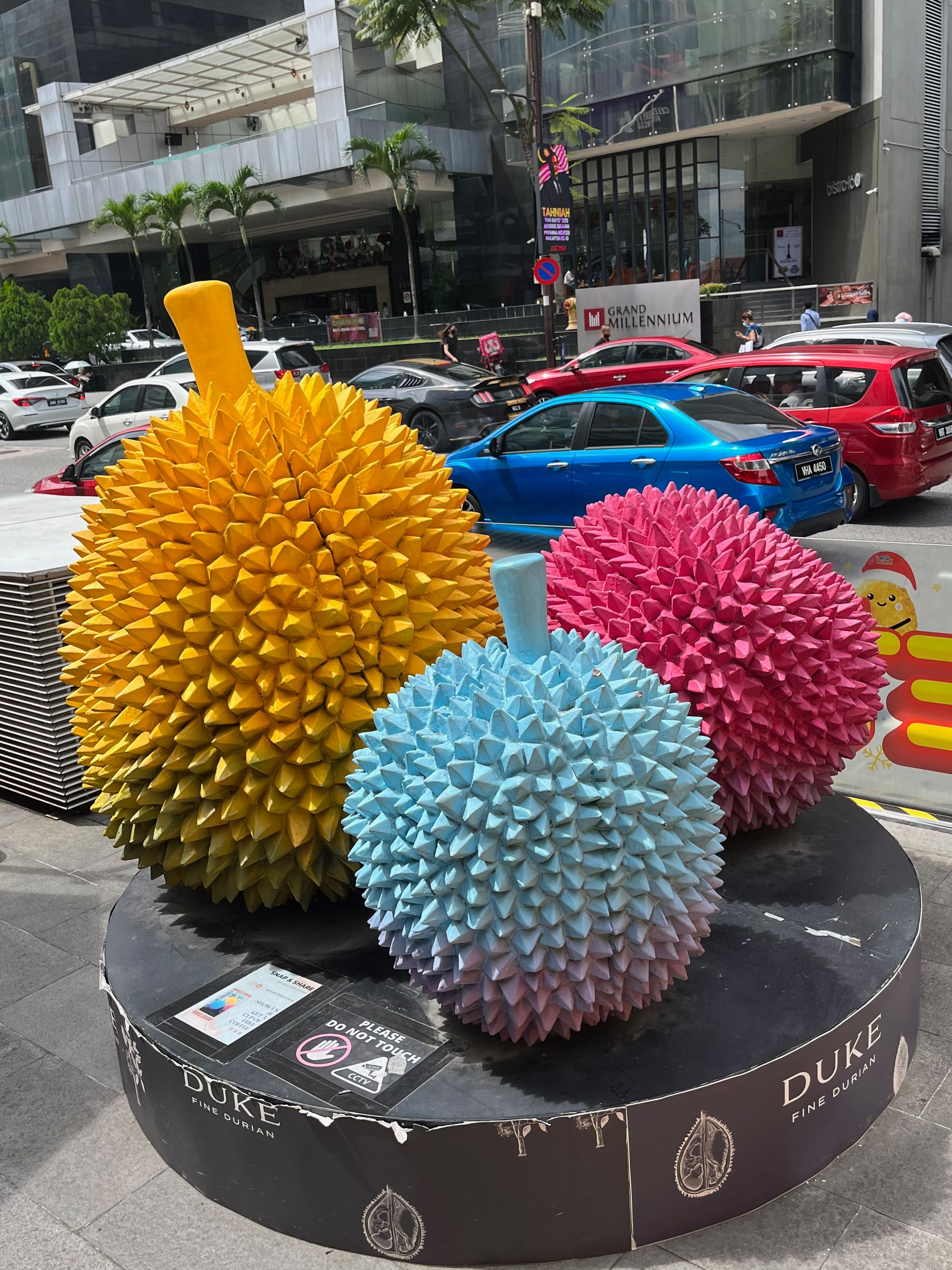


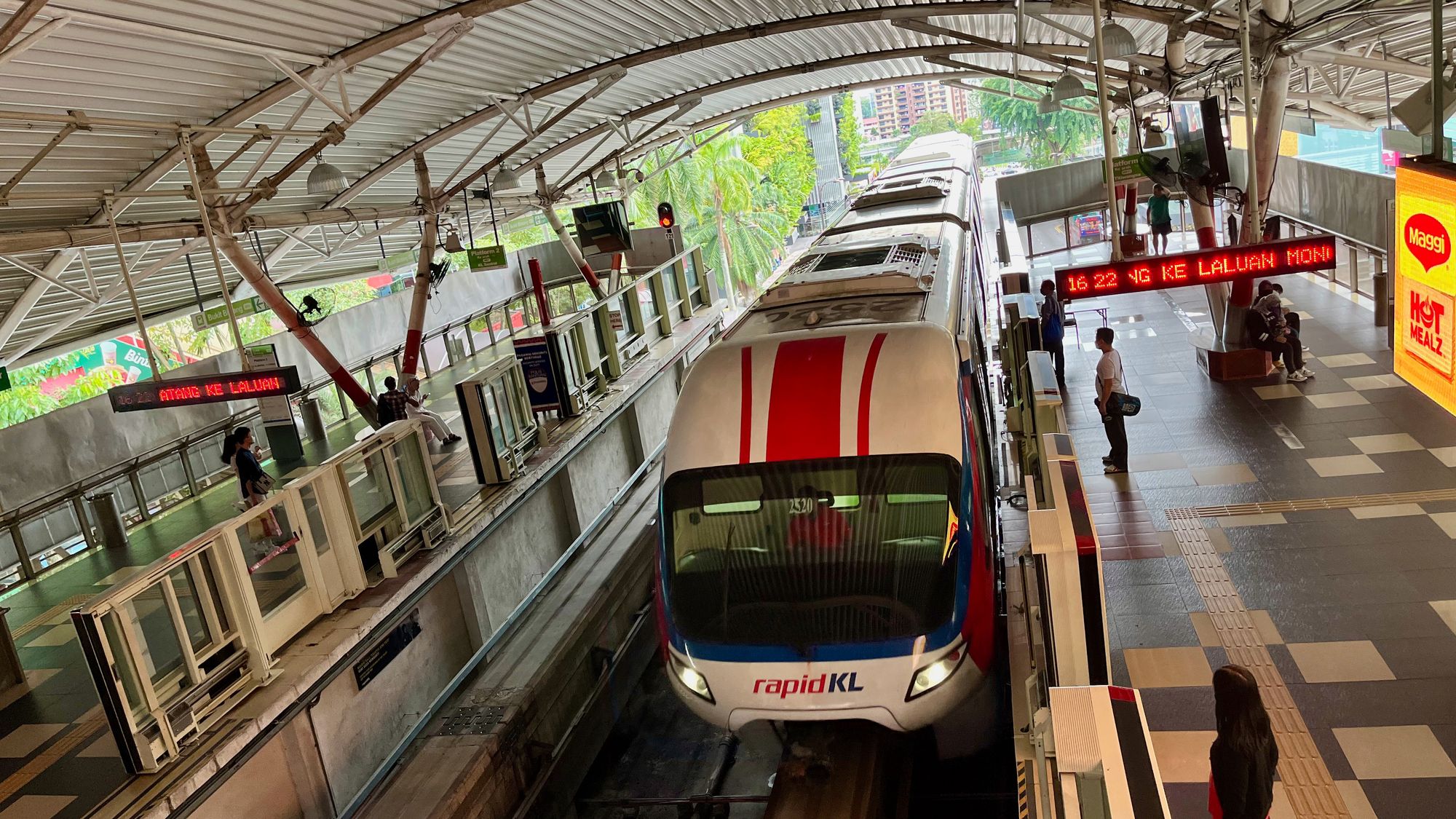
There's more - read on for more insights and learning:
- a couple of noteworthy long reads - with companion audio to listen
- a superbly informative and insightful podcast and a couple of related ones
- the regular section of interesting links
- the regular section with Max's walk and talk and related and relevant clips
- some closing thoughts - I was surprised by this and you might be too
Long reads of the week
This week I did a couple of long reads that are worth sharing. These build on the underlying theme that you will see from many of my newsletters of how money works and how it is abused by a few for their benefit and to the detriment of the many (ie people like you and me).
Financial abuse happens when an abuser takes control of finances to prevent the other party from leaving and to maintain power in a relationship/contract. An abuser may take control of all the money restricting its use and/or withhold or threaten to withhold it. - source
Structural Adjustment: How the IMF and World Bank Repress Poor Countries and Funnel Their Resources to Rich Ones
This essay by Alex Gladstein explains rather clearly how the system of International Aid for Developing countries works. Spoiler, it is nothing like you imagined - unless you have read The New Economic Hitman by John Perkins - we covered this back in issue 27.
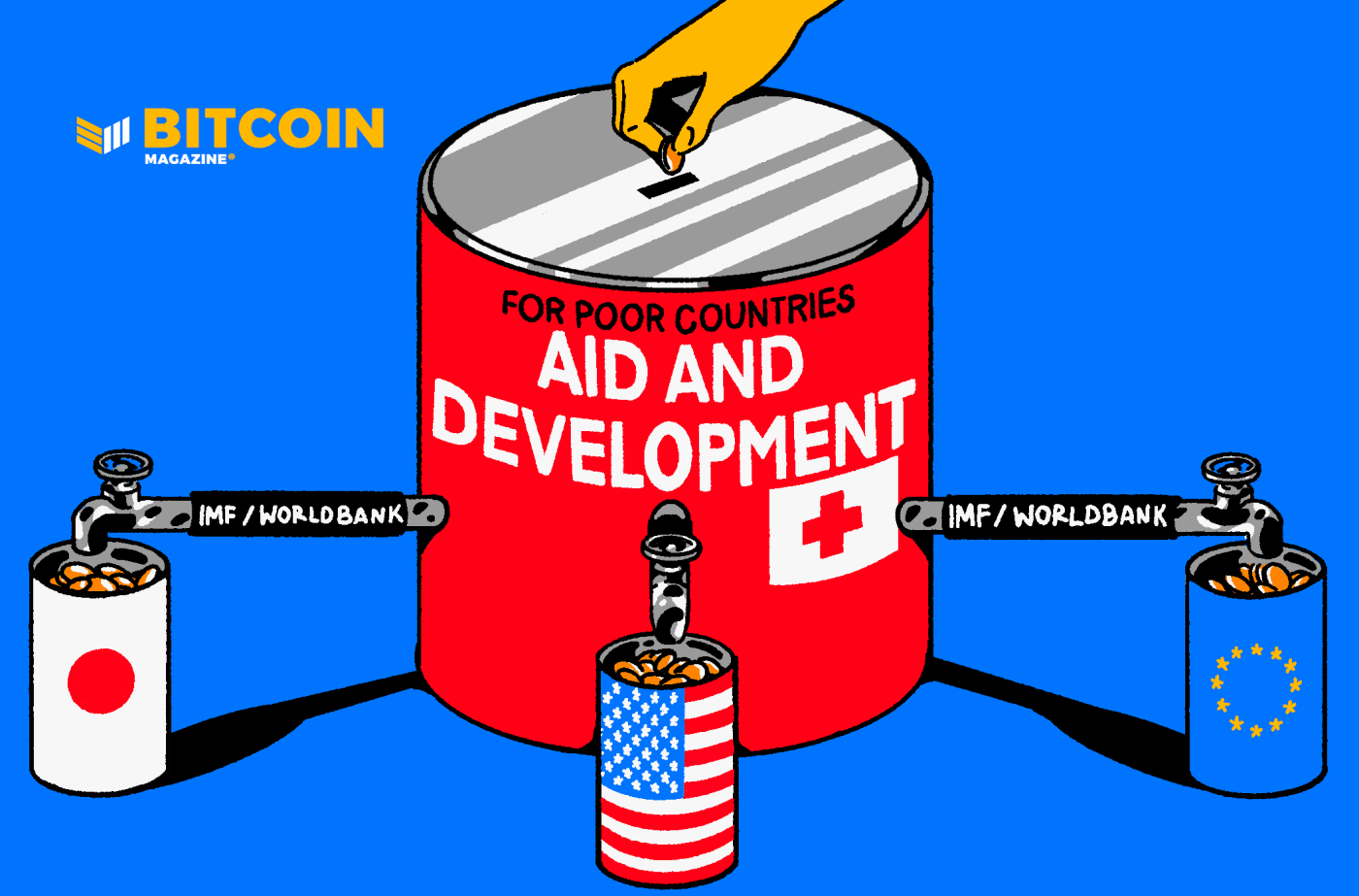
In the 1960s and 1970s, huge loans were extended to the Third World, putting them in debt beyond their means ever to pay. Since 1982, when the amount repaid by borrowers exceeded what was given, the net flow of resources has been from poor countries to rich ones. In this way the IMF and World Bank have approximated the dynamics of "colonial drain" where imperial powers looted the periphery of the globe for hundreds of years, obtaining cheap resources and labor and selling finished goods back to markets where they had monopolies.
“Let us remember that the main purpose of aid is not to help other nations but to help ourselves.” –Richard Nixon
Today the difference is that the sword and gun have been replaced by weaponized debt. What was once accomplished by physical force is now accomplished by "structural adjustment": Conditions attached to loans that dictate how borrowers can run their economies - forcing Third World countries to do what industrial countries like the US, UK, Japan, and Germany were never asked to do post-WWII: Full austerity measures.
Do click above to read the entire article or the twitter feed that summarises it. Alternatively you can listen to NLW reading the summary.
Green Eggs And Ham
Moving on from the FTX debacle and their foresight in Only the strong survive Allen Farrington and Anders Larson dive into another amazing piece on understanding both the conceptual and technical limitations of decentralised finance, as well as trying to discern what the point of decentralised finance really is, and what it might look like when we see a sustainable & capital forming version of it come to be.

The authors aim to distinguish between “DeFi” meaning what actually exists in crypto and has done for the past three years or so, and “decentralized finance” meaning an ideal, sensible, workable version.1
- In Part I, Decentralised Finance, Conceptually, they investigate the conceptual characteristics a candidate “decentralised finance” would need to have.
- In Part II, Decentralized Finance, Technically, the add some additional technical characteristics and turn these insights into a framework for evaluating workable decentralized finance.
- In Part III, The Short, Sad Saga of FTX, they recap the FTX debacle.
- In Part IV, Let’s Play The Blame Game, they apply their framework to FTX and evaluate to what extent it is helpful to blame CeFi, DeFi, and whomever else.
- In Part V, DeFi’s Fatal Conceit, they argue that, as it stands today, it seems unlikely that crypto DeFi will become decentralised finance as it is both culturally and technically doubling down in the wrong direction.
Check out the original article with tons of footnotes and links for digging further and verifying the claims and data shared in the piece - alternatively listen to Guy reading it here in two reads (due to the length): Read 1 and Read 2.
🎙 Podcast of the week
My initial instinct was to skip this one, thinking "what possible use can it be to spend time on this" but it really is the most important thing you can listen to this week. This independently identifies, substantiates and reinforces what we covered last week from Dr Robert Malone and it reinforces the concern of the corruption and politicisation of science by Cantillion-effect fiat funding as Saifedean warned in The Fiat Standard as well as echoing what Mattias Desmet uncovered in his recent book.

Dr. Jordan Peterson and Matt Ridley (former Science Editor of The Economist among other things) go in depth to explore the Covid 19 outbreak, scrutinising the lack of criticism, the inherent red flags widely accepted as benign, the possible motive for a multi-government cover up, and ultimately the demise of the scientific enlightenment as it bends to a more fearsome pandemic: totalitarianism.
Related to the above: normally I have nothing good to say about any politicians but this interview of Thierry Baudet by Hrvoje Morić made me stop and listen. With the exception of one particular rather contrarian position (on which the jury is out) it is hard to argue against any of his positions. He is a leading politician in the Netherlands and he is doing his utmost to push back on the nonsense - he deserves support and there should be more like him in other countries.

Thierry Baudet discusses his foray into politics motivated by the Western world’s turn toward despotism. He describes the elites and the global deep state, their desire for evermore centralization, and their collaboration with U.S. intelligence services. The endpoint of globalism is the social credit system. Loyalties of politicians are defined sociologically, they’re not very intelligent. Thierry wants to do away with the entire gamut of globalism (e.g. UN, EU, WEF, Bilderberg). He does get “metaphysical” and comments on the dark or sinister spiritual nature of events. The resistance against globalism must develop more courage.
After that you might well be motivated to read "Autopsy-based histopathological characterization of myocarditis after anti-SARS-CoV-2-vaccination". Alternatively you can watch and listen to Dr John Campbell's summary. These are autopsies on 25 people who "died suddenly" within 20 days of having a Covid vaccination. There is incontrovertible evidence of vaccine-induced injury being the root cause of at least 20% of these deaths. Surely this should be discussed openly and properly?
If you did not do it last week - I do recommend that you read Dr Malone's article "The Dilemma of the Vaccinated" - it explains two important options going forward : Option A and Option B. For now, most people are choosing Option B. We can only hope that many individuals that were coerced in taking the inoculations without informed consent will realize that Option A will increase their chances of not only improving their lives (if they are unlucky to be affected by the inoculations), but also the health of society as a whole.
🎓 Reading, listening and learning
Below are some interesting sources that I came across, or was reminded of, in the past week - for your enjoyment and edification.
Mark Yusko seems also to be in agreement with Joe, Grace, Upper Echelon and Whitney's position from last week.

Guy's weekly news update is always recommended watching - out every Sunday.

Guy also breaks down the propaganda that was delivered recently via the Dealbook Interview. Corruption blatantly runs very deep - I do rather agree with Guy's conclusion.

Something completely different: Joe highlights one of many very concerning things that is coming. In case you wonder why your food got so expensive and why things that you used to have are no longer available, this might help you understand.

Max's walk and talk
As usual, Max does a great job surfacing and sharing things that you will certainly not hear via your regular propaganda sources (aka mainstream media). Below is Max's recent update along with a few related and highly relevant explainers.

You might well wonder - how can it be that corruption on such a grand scale could exist and persist without being broken. This 30 minute video will help open your eyes to understand how corruption infects a population and persists and how so many people can be unwitting participants, not to mention those who are coerced into it!
Spectrum of corruption

People Power
Straight talking from David Icke - indeed push back is something that everyone can do. But stopping compliance with the nonsense and stupid rules you have a real vote and it does count, unlike votes in all those political elections that divide people and achieve no result. Do not give them your energy.

I'm repeating this image from last week - it really is that simple. This is the vote that counts and everyone has a powerful vote - use it!
You have a real vote

Some closing thoughts..
You might recall back in Issue 29 we discussed the bizarre "coincidental" synchronisation points that exist between the Wizard of Oz movie and - Pink Floyd's Dark Side - if not - do go back and check - it is quite amazing.
Well - it gets even more bizarre. Bitcoin Graffiti is a software engineer by trade and most known for his bitcoin-inspired stencil graffiti, as well as his fascinating and thoughtful writing. He publishes in Bitcoin Magazine and on Citadel21. Check out this article here:

Click to read the article
You may prefer to listen to his most interesting discussion of it with John Vallis.

In the interview he refers to the book (available free - click image below) and indeed the movie from 1939 implemented a number of specific changes from the book that was published in 1899 - you likely do want to consider these changes carefully - they were intentionally done to obscure the message, as he explains.

As you know, I do not take things at face value so I dug deeper and the rabbit hole goes deep - see the video below. For the differences between the book and the movie watch at 1h09. Important lessons to learn from the Iceland story 1h30 (Icesave and Kaupthing) - you likely do recall this and the politics that followed the crisis it is fascinating (latest status here). So many lessons to learn from Iceland - the truth is out there and highly relevant to what is happening now.

“Whoever controls the volume of money in our country is absolute master of all industry and commerce...when you realize that the entire system is very easily controlled, one way or another, by a few powerful men at the top, you will not have to be told how periods of inflation and depression originate.”
― 1881 US President James A. Garfield
...only to be assassinated two weeks after he said this!
I have gone long and deep enough for now - so let's close and reflect on this:

❤️ Enjoy this newsletter?
Forward to a friend and let them know where they can subscribe
No one can be told what The Matrix is. No one can be told what The Matrix is.
You have to see it for yourself.
You have to see it for yourself.

Anything else? Feel free to comment below!
You can also email me at: LetterFrom@rogerprice.me
💡Enjoy the newsletters in your own language : Dutch, French, German, Serbian, Chinese Traditional & Simplified and Burmese.

